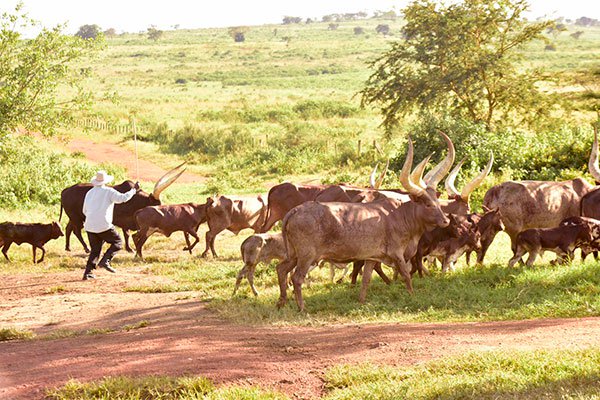How Museveni is profiting from the presidency
Last week, it was reported that equipment at former Zimbabwean strongman Robert Mugabe’s dairy farm was being auctioned to offset a debt owed to an unnamed creditor.
More than 40 vehicles, 13 motorcycles, several tractors, four combine harvesters, and other agricultural equipment were on the block.
It’s superfluous to say that if Mugabe, 95, who had been in power for 37 years when he was ousted in a soft coup in November 2017, was still in charge, none of this would have happened.
That’s because he wouldn’t have had to pay the costs and open market prices that private commercial farmers have to fork out from their pockets. Most of that would be part of the wider cost of maintaining the presidency.
For example, one of the leading ranchers in Uganda is President Yoweri Museveni. He has two vast dairy farms, one in the south, and the other in the west of the country.
He flies between the two on a presidential helicopter. The presidential guard, whose salaries are footed by taxpayers, provides the security at the farms. Government veterinary doctors tend to the First Cattle.
Private citizen Museveni may be able to afford all these things on earnings from selling beef and milk, but it’s unlikely. Already, as it is, with all the state security apparatus available on the farms, last year the villagers still stole the president’s wire mesh.
A large detachment was dispatched to the main secondhand goods market in central Kampala to seize all wire mesh that resembled His Excellency’s.
Some years ago, Museveni said peasants were stealing from Kisozi Ranch in the south. The day he stops being president, they will rob him clean.
Most presidents who go into business these days, will not know the real cost of money, of labour, or transporting, cattle – and therefore won’t learn the skills to thrive when no longer occupying State House.
It goes beyond that. In Kenya, Uganda and other countries like Nigeria, if you are an MP, you will get a car allowance, a business class ticket, a fat per diem, health insurance for your many wives and children, almost everything.
In Uganda last year, MPs got iPads – paid for by taxpayers. Then ordinary folks rose up in arms when parliament voted to impose an Over the Top (OTT) tax of Ush200 (US Cents 19) a day on access to platforms like Facebook and Twitter.
The MPs said the tax was necessary to fund development, and some sneered that it was a “small,” negligible tax.
Now parliament is to buy data bundles for the MPs, and to pay that “small” OTT tax for them.
Shielded against basic economic tasks like choosing which tablet is best for you, and which data plan to opt for, you end up with politicians who don’t get exposed to the knowledge needed to run a kiosk, having to make policies for economies worth billions of dollars.
That US Cents 19 a day in OTT tax, according to one calculation, isn’t peanuts. It is in fact 67 per cent of the average Ugandan mobile phone user’s airtime budget for a month.
But that would be nearly impossible to comprehend for a politician who doesn’t pay for data to watch memes during a boring parliamentary session.
Charles Onyango-Obbo is publisher of data visualiser Africapaedia and Rogue Chiefs. Twitter@cobbo3

